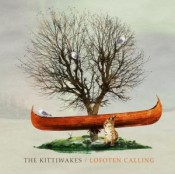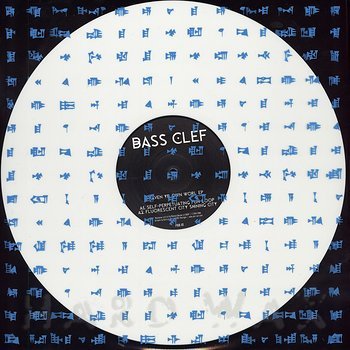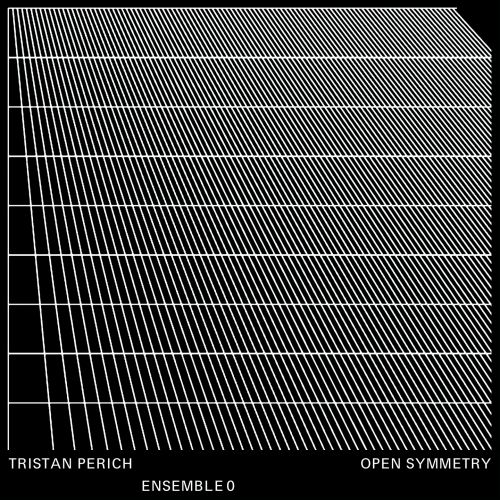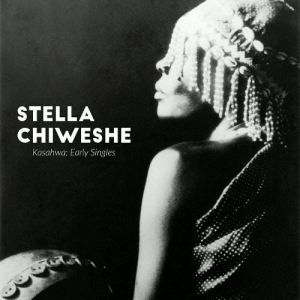 Stella Chiweshe is somewhat of a legend in certain circles — a real global advocate for mbira music as well as a feminist icon — playing mbira at a time when colonial (then) Rhodesia forbade it, establishing a woman’s music festival in Zimbabwe, and all that good stuff. Of course this isn’t why you should buy this record. You should buy it because it’s lovely and you like lovely music.
Stella Chiweshe is somewhat of a legend in certain circles — a real global advocate for mbira music as well as a feminist icon — playing mbira at a time when colonial (then) Rhodesia forbade it, establishing a woman’s music festival in Zimbabwe, and all that good stuff. Of course this isn’t why you should buy this record. You should buy it because it’s lovely and you like lovely music.
This is one of those records that’s, for me, laden with a kind of sadness. It’s fucking brilliant but it’s clearly only a portal into an enormous tradition — the only other mbira records I have are another of Chiweshe (her international debut, Ambuya?) and some Stern‘s compilation. But I know from local mbira group Handei! (possibly also M’bira Club) that basically the mbira is entirely lovely.
What do we get here? Some lovely singing in Shona, and those sorts of rhythms that kind of swim around in your head being entirely lovely. Mostly it’s something approximating major keys and necessarily limited tonal palette but, as with what little I know of central and southern African music (which is probably all entirely discontinuous and not fitting into my schema), where tonality is limited, rhythm gets super expansive.
But yes. So here’s my hot take: basically, the mbira is a gorgeous sound, Chiweshe is clearly among the most qualified of people to play it and this being singles you’ve got a kind of quality control for taking the plunge. Fans of cute melodies, alarming rhythms, Zimbabwean music or just, like, good stuff, would do well to have a crack. Double points for this being a neat eight tracks, so there’s no danger of it going on too long. Good arrows, Ms Chiweshe
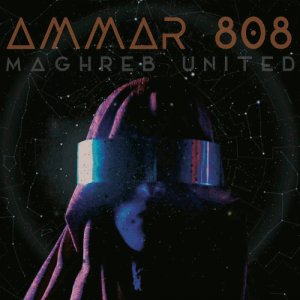 Entirely the other end of the spectrum and banging af, Maghreb United is one of those things that you could limply describe as a melding of North African rhythms and electronics — but that severely unplays the capital letters BANGINGness of it.
Entirely the other end of the spectrum and banging af, Maghreb United is one of those things that you could limply describe as a melding of North African rhythms and electronics — but that severely unplays the capital letters BANGINGness of it.
How it works is basically like this: there’s a loop or sample of some traditional music, possibly Tunisian; a really low sound comes in to establish the beat; other digital sounds float around, but nothing that feels like “remixing” traditional music. It’s a bit like if someone described techno to someone, but neglected to let them hear it and just gave them a bunch of tapes from the Maghreb and a big button marked “banging”.
Disappointingly, it turns out the man behind AMMAR 808, Sofyann Ben Youssef, is actually fairly well-heeled and behind a bunch of other projects (Kel Assouf, Bargou 08, Electroربوخ). I was kind of hoping it was going to be some kid in Tunisia pissing off his parents with bedroom bangers. Still, if you’re evoking those kind of vibes then you’re definitely doing something right.As with the Chiweshe record before, this is a neat package that’s short — a thirty-minute exposé on AMMAR 808 rather than the multi-part biopic. Can’t recommend that enough for records, frankly. And also like the Chiweshe, I can’t really place this in any sort of tradition — it doesn’t sound like a great deal of electronic dance music I’m familiar with and I’m less familiar with traditional Tunisian sounds.
To conclude: beautiful or banger, it seems glitter beat have you covered. Go forth, and spend your hard-earned, innit.
-Kev Nickells-
